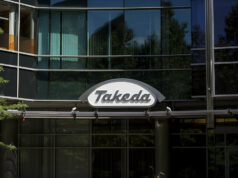
Earlier this week, reports of European approval for a gene therapy to treat a rare blood disorder were greatly exaggerated. Now, they’re likely soon to become official.
Cambridge, Massachusetts-based bluebird bio said Friday that the European Medicines Agency’s Committee for Human Medicinal Products, or CHMP, recommended conditional approval for Zynteglo (autologous CD34-positive cells encoding beta-AT87Q-globin gene). The approval is for patients aged 12 and older with transfusion dependent beta-thalassemia – or TDT – who do not have a beta-0/beta-0 genotype and for whom an HLA-matched hematopoietic stem cell donor is not available.
Shares of bluebird on the Nasdaq opened up about 2 percent following the news. SVB Leerink analyst Mani Foroohar wrote in a note to clients Friday that final approval is expected, forecasting that peak global sales in TDT could reach $1.2 billion in 2030. Zynteglo, also known as LentiGlobin, is additionally in Phase I/II development for sickle cell disease.
Earlier this week, two beta-thalassemia advocacy organizations – the UK Thalassaemia Society and Italy’s Associazione Veneta Lotta alla Talassemia – issued a press release stating that the EMA had approved the therapy, also under the Zynteglo brand name. This prompted a correction from bluebird, which stated that the therapy was still under review as part of the CHMP’s March 25-28 meeting.
Beta-thalassemia, which causes lower-than-normal production of hemoglobin, causes reduced oxygen delivery to the rest of the body. It is rare in the US and more prevalent in the Mediterranean, as well as the Middle East, Africa and Asia. Another therapy in late-stage development for the disease is Acceleron Pharma’s luspatercept, an erythroid maturation agent.
With the CHMP’s positive opinion, the European Commission – which has authority to approve the therapy – will review it. A final EC decision is expected in the second quarter of this year.
A conditional marketing authorization means the approval of a medicine that is deemed to address an unmet medical need on the basis of data that are less comprehensive than usually required, similar to accelerated approval by the US Food and Drug Administration. The data must show the medicine’s benefits outweigh its risks, and the sponsor must be able to provide more comprehensive data in the future. The CHMP’s role is analogous to that of the FDA’s advisory committees, or AdComs. The EMA regulates medicines across the EU and also in the non-EU, European Economic Area nations of Norway, Iceland and Liechtenstein. Switzerland has an independent agency.
To support its EMA application for Zynteglo, bluebird submitted data from the Phase I/II HGB-205 and Northstar studies, the latter of which showed that eight of 10 patients achieved transfusion independence. That means they have not received a transfusion for at least 12 months and have maintained a hemoglobin level at least nine grams per deciliter, with a median transfusion independence duration of 38 months at the time of data cutoff.
The company announced on March 22 the opening of its manufacturing facility in Durham, North Carolina. Previously, it had been relying primarily on contract manufacturers, notably Switzerland’s Lonza. In Europe, it is working with three contract manufacturers: Cambridge, Massachusetts-based Brammer Bio; Gosselies, Belgium-based Novasep; and MilliporeSigma, part of German drugmaker Merck KGaA. Earlier this week, Thermo Fisher Scientific said it would acquire Brammer Bio for $1.7 billion.
Photo: harmpeti, Getty Images








